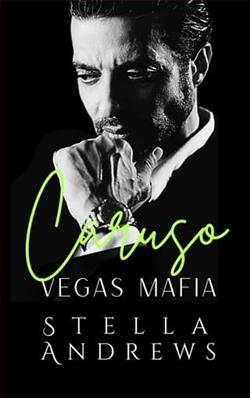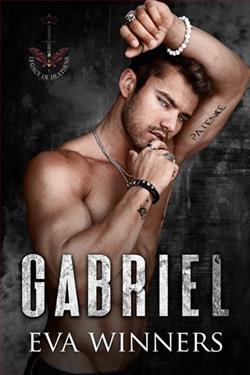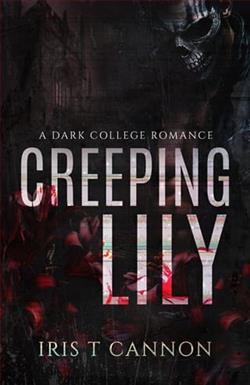Page 56 of Deep Blue Lies
“Oh I know that,” Sophia answers. “If only I could have inherited your looks.”
Maria stays silent about this until a few minutes later, when she says:
“His house is up here on the left.”
The house is tucked into a narrow backstreet just far enough from Kastria’s main square to escape the noise. It’s somewhat hidden behind high, whitewashed walls, but an iron gate is open, and inside a cat lies asleep in a shaft of sunlight. There’s an old-fashioned knocker on the door, which Sophia raps three times.
“Hope he’s here.”
A second later we’re assaulted by a barrage of noise, dogs barking, followed by a man’s voice shouting at them in Greek. The cat wakes up, stretches and wanders away, just before the door opens.
Papadakis is a small man with round glasses, dressed in a loose shirt. He takes his time looking at each of us, his expression unreadable, until his eyes land on Maria.
Then he steps back, opening the door fully.
“Come in quickly, before they get out.”
I’m not quite sure what this means, but we all go inside to a small hallway, which then opens into a bright kitchen – and then I do know, because half the floor is given over to a pen containing a dozen black-and-white puppies, standing on their hind legs, their curled tails wagging furiously. They climb on each other’s backs, almost clearing the fence that keeps them in place.
“Oh my God,” Sophia says at once, moving there and crouching down. “They’re adorable.”
“They’re a terrible mistake, is what they are,” Papadakis replies. Then he takes Maria’s elbows and lightly kisses her on both cheeks.
“You must be Sophia?” he says to her, then to me, “And the English girl?”
“Ava.” I hold out my hand. He looks at me with warm interest, then shakes my hand.
“How old are they?” Sophia asks, still crouched by the pen, and trying to stroke as many of the puppies as she can at once.
“Six weeks – no, seven,” he corrects himself, watching as she continues to fuss.
“What breed?”
“Ellinikós Pimenikós,” – he glances at me – “Greek Shepherd dogs. They used to live among flocks in the mountains, protecting them from wolves, jackals, even bears here, in the old days.”
Sophia pushes her face into the pen, and a dozen pink tongues fight to lick it. The dogs are pretty cute, but I’m feeling too raw to pay much attention.
Papadakis watches for a moment, then says, “These ones will not be facing bears, though. On the mother’s side they are interbred with a Poodle – their coats do not shed. People like that. It is better for families.”
We watch Sophia a while longer, burying her face in their soft fur.
“I was wondering what you might be getting up to,” Maria says. “Now that you’re retired.”
“I’m enjoying the quiet life.” He lifts his eyebrows ironically. “Can I offer any of you a drink?”
We meet the father of the pups as we wait outside in the courtyard, sitting at an iron table. He’s about the size of a Labrador, but sturdier and much calmer. After checking us out he seems content to let us be. He lies down and falls asleep in the same spot where the cat was. Papadakis emerges after a while, with a tray containing teapot, cups and saucers.
“In a box, on the table. One of the puppies – the runt of the litter, I think you call it. I’ve separated it from the others, they bully her. If you want you can fetch her,” he says to Sophia, who gets up at once.
He pours the tea as she comes back, holding a floppy-eared pup, its tiny mouth yawning. She sits down with it on her lap.
“So, Maria, you wished to speak to me about the events at the old Aegean Dream Resort, correct?”
“That’s right.” Maria’s eyes widen as she leans forward.
“I heard they’re knocking it down,” Papadakis replies. “Not before time.”
“Quite.” She smiles. “We’re interested in the events that led to its closure.” Maria glances at me to be sure I’m still comfortable. I nod lightly.















